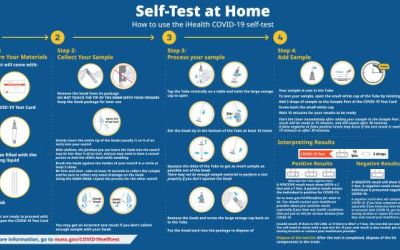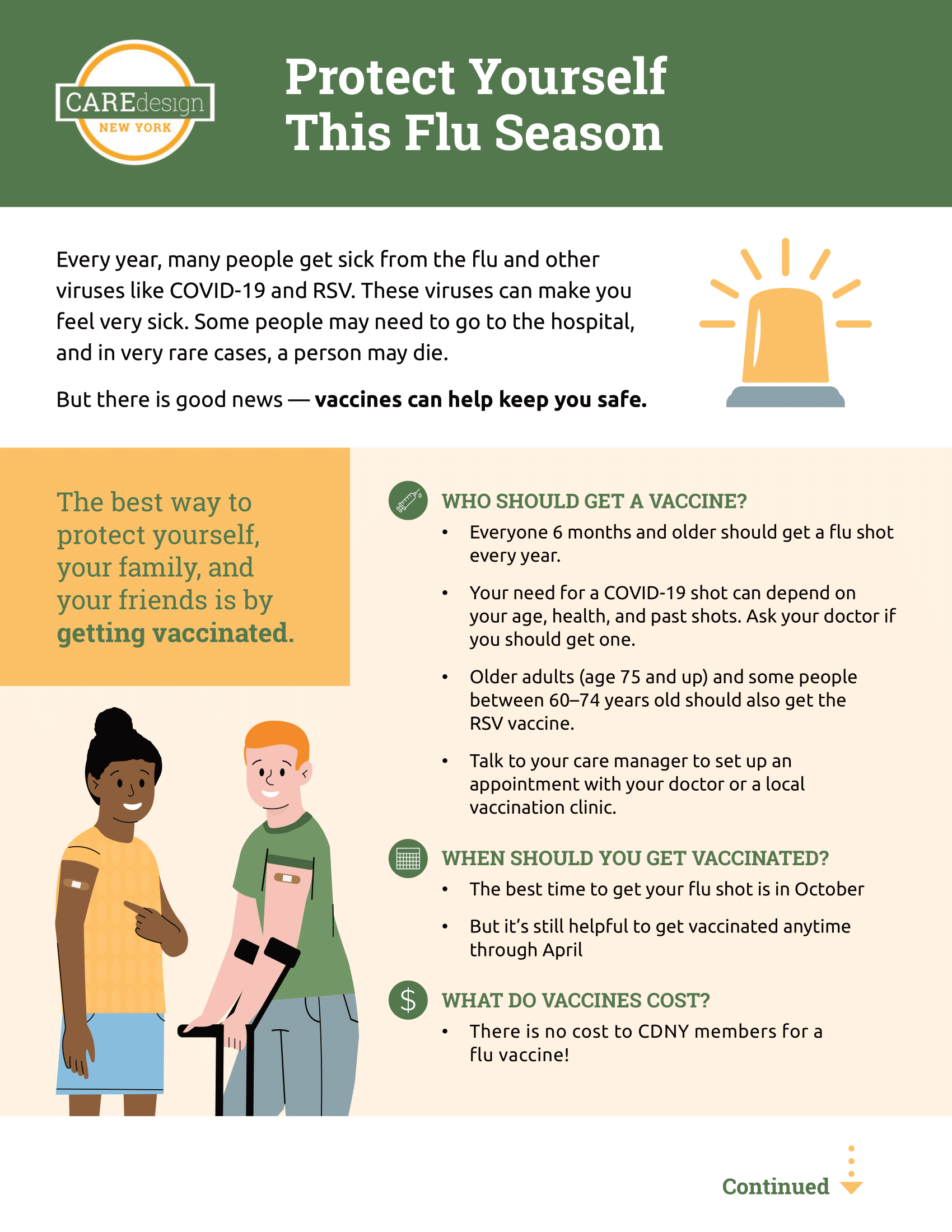Healthcare Resources
Care Coordination Organizations/Health Homes (CCOs/HHs) are committed to the delivery of high-quality comprehensive care coordination. Care Design NY has developed a strong framework for escalating our involvement to support individuals and families.
Care Design NY continues to work in collaboration with OPWDD providers, medical providers, mental health providers and community resources, to ensure all members receive needed supports, services and resources necessary to maintain health and well-being. Risk level assessment is an essential component of comprehensive care coordination.

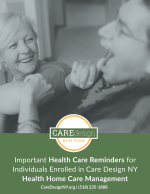
Important Health Care Reminders
Healthcare News & Updates

Tips for Chasing the Winter Blues
The 2023 holiday season has ended, and we begin a new year filled with fresh hope and new resolutions to be happy and healthy. We’ve gathered some tips from our behavioral health and health care management team and the National Alliance on Mental Illness (NAMI) for managing your mental health.

Breast Cancer Screenings
October is Breast Cancer Awareness Month. Did you know that women with Intellectual and Developmental Disabilities (IDD) are at higher risk of getting breast cancer?
Women who are 50 to 74 years old should have a mammogram every two years. Women who are 40 to 49 years old or 75 years old or older should talk to their doctor about when to start or how often to get a mammogram. The frequency of screening may depend upon underlying risk factors.
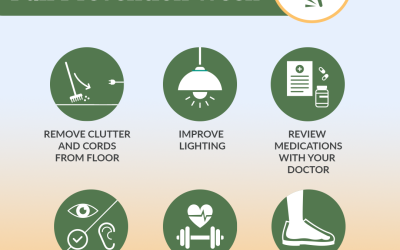
Fall Prevention
Falls should not be considered a “normal” part of aging. Yet each year one out of four older adults reports a fall. This about 36 million falls of which 8 million require medical attention for injuries ranging from bruises to fractured hips and head injuries. Approximately 32,000 older adults die each year from falls.
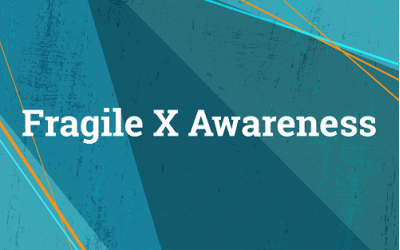
Fragile X Awareness
July marks National Fragile X Awareness Month and July 22 is National Fragile X Awareness Day. Day. Did you know that Fragile X syndrome (FXS) is one of the most common causes of inherited intellectual disability?
Individuals with FXS can benefit significantly from person-centered planning, care management, and access to comprehensive services and support.

Tips for a Healthy Summer
As we move into the summer season it is a great opportunity to talk about ways to have a healthy summer and keep our health and wellness at the forefront of what we do every day.
Here are some tips and tricks to help you to look after your health this summer!

Mental Health Matters
Addressing mental health symptoms early is critically important for overall health. Mental health care IS health care!

Diabetes Awareness
November is National Diabetes Awareness Month. Diabetes is a disease that affects how your body turns food into energy. A lot of what you eat turns into sugar (glucose) and goes into your blood. The biggest health risks of diabetes are associated with high blood sugar, which can increase the likelihood of blood clots and impaired blood flow by making cells sticky and blood vessels stiff.
Making deliberate food choices and scheduling any activities that get you moving are healthy measures to take if you diabetes.
Flu Resources and Education
COVID-19 Resources and Education
CDC: COVID-19 Materials for People with I/DD and Their Care Providers
Other Plain Language Resources and Graphics
Translated Plain Language COVID-19 Fact Sheet
- English
- Spanish
- Haitian Creole
- Russian
- Korean
- Bengali
- Simplified Chinese
- Traditional Chinese
PLEASE NOTE: This page, and any content directly on the Care Design NY website (not an external link or PDF) can be translated by using the language selector above the menu bar.
COVID-19 Fact Sheets By Language
People with Disabilities and COVID-19 (Korean)
Why are COVID-19 Vaccines Important (Korean)




